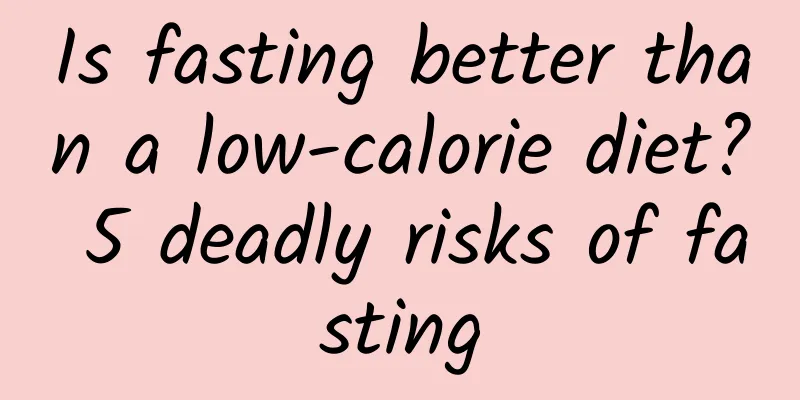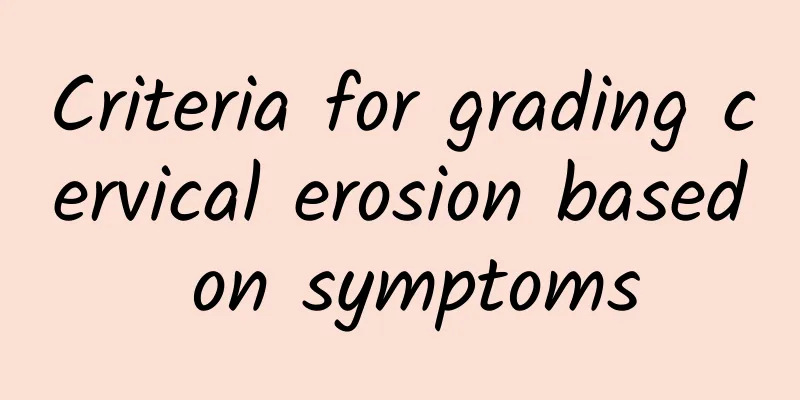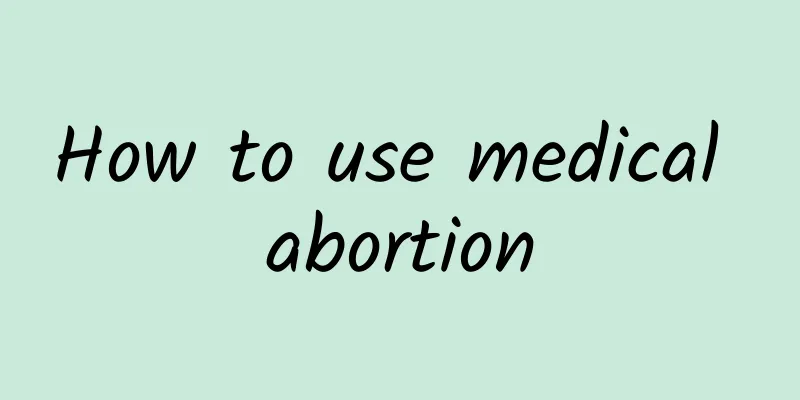Is fasting better than a low-calorie diet? 5 deadly risks of fasting

|
There are hundreds of ways to lose weight, and the "fasting method" has become popular all the way from abroad to China. In order to pursue the pleasure of rapid weight loss in a short period of time, many people can't wait to starve themselves. But is fasting really all beneficial with no harm? The currently popular fasting methods have one thing in common, which is that they all involve fasting for at least 16 hours, or extending the fasting time to one meal a day (24 hours), one meal every two days (48 hours), or even more radically relying only on drinking boiled water for 3 to 5 days, and then eating a 1,500-calorie (or even higher) meal to make up for the calories needed for the day. The practitioners believe that through long-term fasting, the body's insulin level can be reduced to a minimum. Insulin is a major driver of the body's energy storage. Therefore, as long as insulin is reduced, we can happily make full use of the energy that has been accumulated in the body for a long time, that is, body fat, and in this way we can lose weight easily! But...is there really something in the world that is so easy to achieve and does not require any price to be paid? 5 risks of fasting 1./Stop being hungry, it’s not a long-term solution Let's start with the most practical perspective. The reason why people get fat is because they cannot control their mouths. They love delicious food but have difficulty controlling the portion. Many people finish their lunch at 1 p.m. and it is difficult for them not to eat before getting off work at 6 p.m. They also have to endure 16 hours of hunger. Even extending the fasting time to 48 hours is simply more difficult than climbing a mountain to heaven. Fasting will not help you lose weight for a long time. Even if you survive hunger once or twice, if you can’t stick to it, it will be difficult to maintain your weight in the long run. 2./Impaired intestinal function If the first victim of fasting is the physical and psychological emptiness caused by hunger, then the second victim is the intestines. The intestine is an organ that cannot bear to be lonely. It needs to constantly receive the physical stimulation brought by the passing of food, and at the same time directly absorb and utilize the necessary nutrients from the food to maintain the health and vitality of the intestine. However, when fasting, the intestinal mucosa will begin to atrophy due to the lack of these stimulations and nutrients, further leading to functional impairment. 3. Gallstones The small gallbladder under the liver is a major contributor to the emulsification of dietary fats, but if you fast for a long time, have irregular meals, or consume too little fat, it will deprive the gallbladder of its opportunity to work. The bile in it cannot be discharged normally, which can easily cause gallbladder inflammation and gallstones. When you need to replenish your daily calories after fasting, eating high-calorie, high-fat meals will stimulate the gallbladder to contract rapidly, causing the gallstones or stones in the gallbladder to squeeze into the gallbladder duct, making you feel sick and in unbearable pain. You don’t want to try this... 4. Constipation The most frightening thing when losing weight is hunger, and the second most annoying thing is constipation. Fasting reduces food intake, and the amount of stool will naturally decrease. Although occasionally not having a bowel movement for one or two days may not have a big impact, if you develop irregular bowel habits for a long time, it will aggravate the constipation! 5. Electrolyte imbalance, arrhythmia If you are an active faster and want to try a more radical long-term fast, you should be especially careful. At this time, the body will begin to burn amino acids and stored fat to produce ketone bodies to provide energy for the brain and body. However, the production of ketone bodies may make the body's pH value tend to be acidic. If you do not drink enough water, it can easily lead to electrolyte imbalance, causing cramps, muscle pain, emotional instability, and even ketoacidosis or arrhythmia, which are life-threatening. If you safely survive a long period of fasting, don't take it lightly and binge eat and drink right away. Long-term fasting will put your body's cells into standby mode. If you suddenly eat a large amount of food, it will easily cause electrolyte and body fluid abnormalities, leading to complications such as heart, nervous system, and respiratory system dysfunction, and in severe cases, it can even lead to death. After all this, you may still not be able to help but shout: "I am such a strong person with strong willpower, how can my body not be able to bear fasting for a few days!" Congratulations, if you are a "healthy fat person" (no personal attack, because most of the fasting research is designed and conducted for obese people), you may try fasting after consulting a doctor or nutritionist. However, in the cruel reality, many obese people, in addition to weight problems, also have metabolic diseases such as metabolic syndrome and diabetes. If they fast rashly at this time, they will also face the risks of hypoglycemia, ketoacidosis, dehydration, coma, etc.! Therefore, before adopting any special weight loss method, you must consult a doctor or nutritionist for evaluation. Don't blindly follow the trends just because of online rumors. Be careful not to lose weight and even your health! |
<<: Get rid of belly fat~ Homemade "Chinese herbal oil-cut green tea" helps reduce fat
Recommend
How much does a routine gynecological examination cost?
Nowadays, the incidence of gynecological diseases...
What is uterine fibroids? How to treat uterine fibroids? What is the cause of this disease?
What is uterine fibroids? How to treat uterine fi...
How to prevent nasal allergies during exercise? 5 tips to check out
It’s March again, the season when allergies are m...
What are the causes of gynecological uterine fibroids and how to prevent them?
With the development of modern fast-paced life, m...
Can chronic cervicitis be cured? The correct method of drug treatment for chronic cervicitis
With the continuous change of people's living...
What are the main symptoms of hyperprolactinemia?
What are the main symptoms of hyperprolactinemia?...
Diabetic patients who do not want to rely on insulin use weight loss surgery
Currently, there are about 1.66 million people su...
Benefits of exercise for vaginal candidiasis
Active prevention of candidal vaginitis can avoid...
Is irregular menstruation hereditary?
Is irregular menstruation hereditary? The appeara...
Children have runny noses, sneezing, itchy skin during the season change... Nutritionists teach you 3 ways to avoid allergies
When the seasons change, parents worry most about...
What are the preventive measures for cervicitis
Cervicitis is a common gynecological disease. The...
Are cervical precancerous lesions dangerous?
The uterus is very important for women. It is the...
How to avoid infection after medical abortion
Since most patients who have medical abortion do ...
Reasons for scanty and dark menstruation
Small and dark menstrual periods may be related t...
What are the symptoms of uterine adnexitis?
What are the symptoms of adnexitis? Adnexitis is ...









